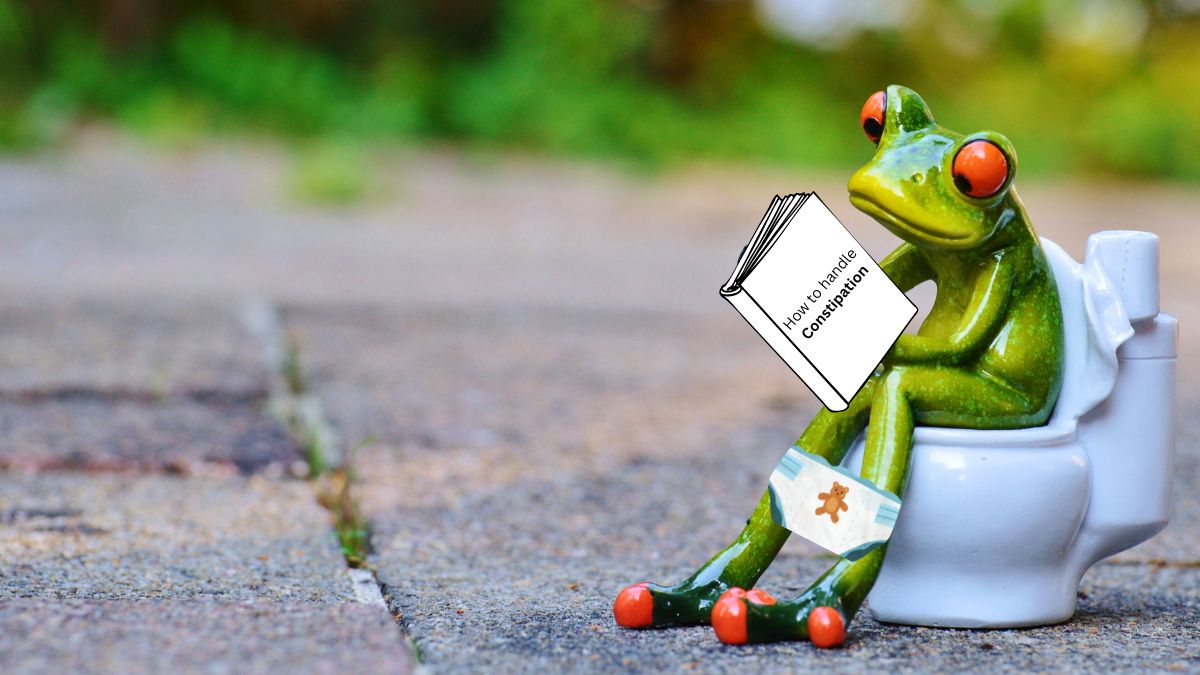Constipation in Children: Why Does it Occur & How to Handle it
As a parent, dealing with your young one’s constipation issues can be one of the trickiest challenges you will have to face. Almost every child develops constipation at one point or another in their early years, and it is fairly common in babies. However, constipation can be a cause of discomfort and pain for children of any age especially since they would not know how to handle it on their own. Thus, whether temporary or chronic, it is essential that parents understand what causes constipation and how to help their child get rid of it effectively. Let us dive right into the topic to learn more.
What is Constipation?

Mayo Clinic suggests that babies till the age of three months may have up to three or four soft bowel movements per day. By the time a child is one year old, the frequency may reduce to two per day which further reduces to one bowel movement per day when they reach the age of four.
There is, however, no standard or right frequency of bowel movements that a child should have as each child is different. As a baby grows up, the number of bowel movements also decreases with the changes in diet. Occasional episodes of constipation may not be something to worry about. However, it might be necessary to investigate further if your child frequently suffers from constipation.
In a nutshell, constipation includes:
- Hard stools that are difficult to pass.
- Having fewer than three bowel movements a week or no bowel movement in three days.
- Incomplete bowel emptying.
Why Does One Get Constipated?
The most apparent cause of constipation is a change in diet, particularly low fiber and lack of hydration. Additionally, some medications may also cause moderate levels of constipation.
In babies, the reasons for constipation may differ according to age. For instance, most babies may first experience constipation when they are transitioning from milk or semi-solid food to a more solid diet. Since the stomach is in the process of adapting to new food items being introduced, babies may have hard stool or poop less frequently.
For toddlers and children already accustomed to solid food, having a lack of fiber-rich fruits and vegetables as well as drinking less water is the most common cause of constipation.
Following are some of the most likely causes of constipation in children:
- Avoiding visits to the toilet, and withholding stool consciously (e.g. if the toilet is dirty or if they don’t want to take a break from playing).
- Improper or early potty training. This may lead to what experts call “stool toileting refusal.”
- Change of diet or routine including any new food introduction, traveling, or stressful event.
- Use of certain medications such as iron supplements.
- Genetics with other family members who also suffer from constipation.
- Medical conditions such as any malformation or metabolic disease.
How to Handle Constipation in Babies?

As mentioned previously, infants may experience constipation if they are shifted to formula milk from breast milk or to more solid food options, so it is important that the shift is slow and gradual. Any drastic changes in the baby’s diet can have an immediate impact on their bowel movements.
If you find that your baby is experiencing constipation, there are certain remedies that can help relieve it. However, be sure to consult your pediatrician and discuss this before using any medication or remedy.
Following are some ways to relieve constipation in babies:
- Exercising the baby’s legs to stimulate the bowel.
- Giving them a warm bath to relax their stomach.
- Shifting to a different milk formula if your baby is experiencing frequent constipation.
- Adding a small amount of water (if the doctor recommends) to increase hydration.
- Massaging the baby on the stomach with fingers.
How to Handle Constipation in Toddlers?
A child would ideally have more food and drink options in their toddler months. It would include milk, cereals, some fruits, and vegetables, amongst other edible items like protein. However, toddlers are also known to be finicky when it comes to eating. Moreover, most parents start to toilet train children between the ages of 18 to 24 months. This transitioning phase increases the chance of experiencing washroom trouble.
Following are a few ways to handle constipation in toddlers:
- Giving the baby 100% juice, such as apple juice. Do not use the juice if it causes diarrhea or loose stools.
- Giving them pureed fruit like pears or peaches.
- Feeding them some oatmeal or wheat cereal instead of rice cereals which are known to cause constipation.
- Increasing hydration by providing ample amounts of liquids.
- Taking them for short walks to increase exercise.
How to Handle Constipation in Children?
By the time a child is 3-4 years of age, they would be sampling most of the adult food options, if not all. Certain foods, mainly processed ones, may cause children to face constipation more frequently. Any sudden deviation from eating or washroom routine can also cause your child to have trouble pooping. Changes in the food or even routine should be introduced slowly and gradually.
If your child suffers from constipation, here are a few ways to help them:
- Give them a balanced diet with adequate amounts of fiber and protein.
- Include whole grain items in their diet.
- Be sure to encourage them to eat more fruits like pears and apples.
- Include vegetables like carrots, peas, and broccoli.
- Keep a check on their water intake.
- Increase physical exercise for children.
- Establish a regular toilet routine.
Frequently Asked Questions
Following are the most common symptoms of constipation:
– Passing hard stools
– Straining or crying while having a bowel movement
– Stomach or cramping
– Nausea or vomiting
– Bloating
– Firm to touch tummy
– Lack of appetite
– Being cranky
Constipation is usually not severe in children. However, if your baby has been experiencing constipation for two weeks or has not pooped at all in three days, it is best to consult a competent pediatrician without further delay. Avoid the use of any medication or laxatives without consulting the doctor.
Following these steps below may help stimulate a constipated baby:
– Gently bending their knees towards their chest a few times
– Massaging the stomach in a circular motion
– A warm bath to relax muscles
– Taking rectal temperature to stimulate bowel
- How to Raise Awesome Parents: A Guide by the World’s Coolest 5-Year-Old - December 22, 2023
- How to Use Sight Words: Strategies for Mastering Common Words - August 4, 2023
- Understanding Dyslexia: Nurturing the Unique Reading Journey of Dyslexic Readers - July 31, 2023








So extremely helpful! Our son had issues with this when potty training. Thankfully it went away once he got more comfortable.
My second child has an issue with stopping what he’s doing to go to the bathroom. Thank you so much for posting this because it’s extremely helpful!
New mama here! This was super helpful!